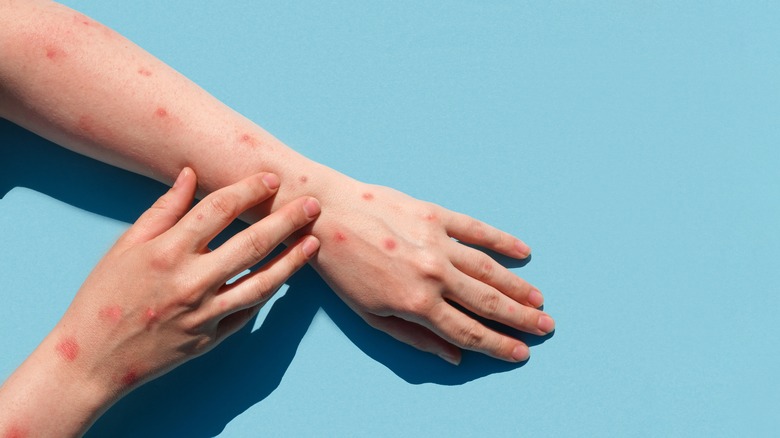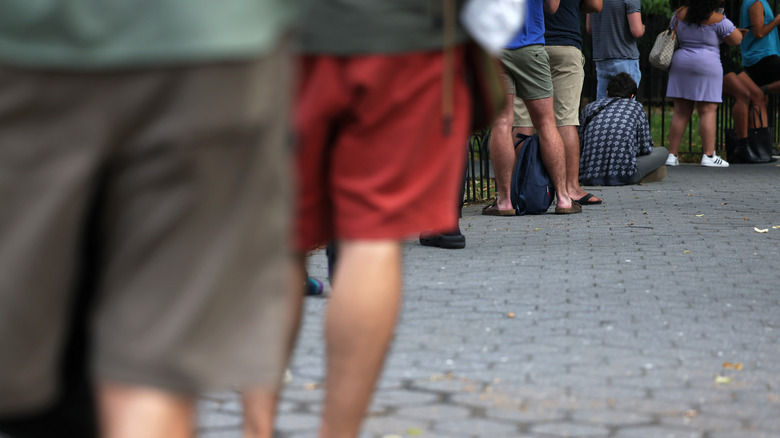Misinformation About Monkeypox Is On The Rise. Here's What You Need To Know
As monkeypox continues to spread across the U.S., misinformation about the virus is on the rise, causing confusion and stigma about who it affects and how it is spread. Many people on social media, including public officials, are falsely suggesting that monkeypox is a sexually transmitted infection (STI) that only affects men who have sex with men. According to experts at Healthline, however, this is harmful and stigmatizing misinformation.
Monkeypox is not an STI, and while many detected cases in the recent outbreak are among gay and bisexual men, anyone can get monkeypox through any type of prolonged skin-to-skin contact with someone who is infected. It can also be spread through saliva, respiratory droplets, unwashed surfaces, and contaminated linens. According to the Centers for Disease Control and Prevention (CDC), the virus cannot be contracted by simply walking past someone with monkeypox or having a casual conversation with them.
"You can get monkeypox from someone without having sex with them," Dr. Linda Yancey, an infectious disease specialist with the Memorial Hermann Health System in Houston, told Healthline. "In much the same way that you can get COVID from a sex partner without COVID being an STI, you can get monkeypox without it being an STI."
Stigma around monkeypox can hinder eradication efforts
The homophobic stigma and misinformation around monkeypox aren't just inaccurate; it's also harming efforts to curb the spread of the disease. That's because it points blame at the LGBTQ community, particularly gay and bisexual men, for spreading monkeypox, giving others the impression that they cannot contract the disease. According to public health experts at ABC News, this stigma has led to an increase in homophobic, and even transphobic, messaging around monkeypox, which could prevent people from getting tested and seeking treatment for the disease, hindering eradication efforts.
"We're at this critical phase of this outbreak where we should be doing everything we can to stop this before it becomes endemic," Dr. Scott Roberts, associate medical director of infection prevention at Yale School of Medicine, told ABC News. According to Roberts, that includes breaking the stigma and amping up outreach, testing, and treatment, in addition to vaccination against the virus.


